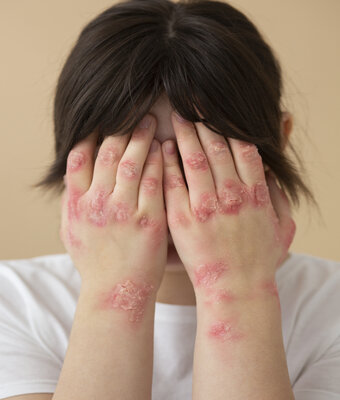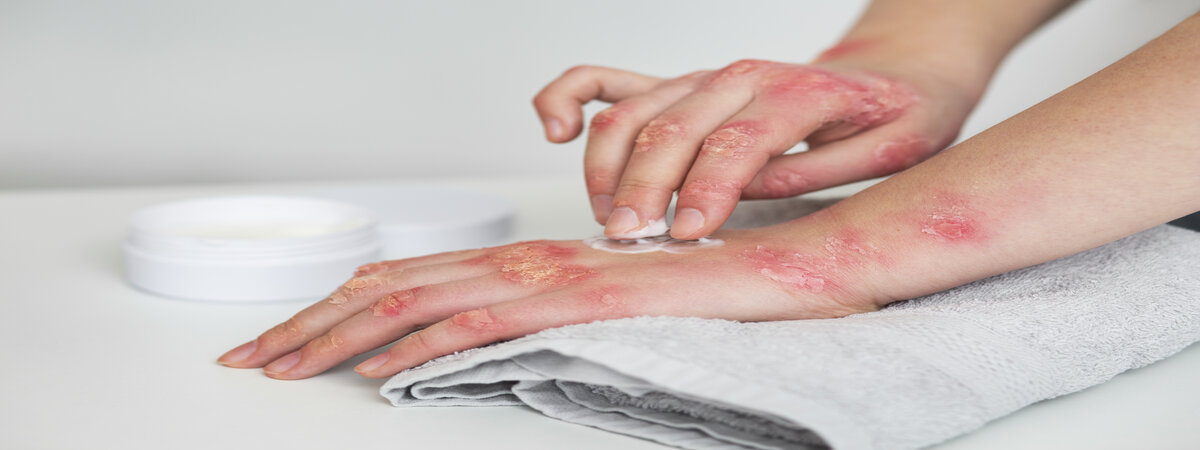
Eczema: What Causes It, What Makes It Worse, and How to Manage It
Dealing with eczema can be tough. I know it’s not just about itchy skin—it affects how you feel and even how you go about your day. But here’s the thing: eczema is absolutely manageable, even though it can be a pain. Getting a good understanding of what’s causing your eczema and how to treat it is the first step toward feeling better.
Let’s break it down: what causes eczema, what makes it worse, and how you can take control.
So, What’s Really Going On with Eczema?
You might be thinking, “Why did I get eczema in the first place?” Honestly, we still don’t know exactly why some people get it, but here’s what we do know for sure:
It Can Run in Families:
If eczema is something your family members struggle with, you might be more likely to have it too. It’s just in the genes.
Your Immune System Plays a Role:
If you’ve had eczema since you were a kid, you might have noticed other issues like allergies or even asthma later on. That’s because eczema is linked to your immune system, and your body’s immune response can cause flare-ups.
Your Environment Matters:
Where you live can make a difference. Colder, drier climates or places with pollution can trigger eczema, too.
Skin Barrier Trouble:
Your skin has a protective barrier that locks in moisture and keeps irritants out. If that barrier is compromised, your skin gets dry and irritated, which makes eczema flare-ups more likely.
What Makes Eczema Worse?
A lot of things can trigger eczema flare-ups, though they don’t cause it directly. Here are a few things that can make your eczema worse:
Certain Foods:
Foods like dairy, eggs, or nuts might make your eczema act up for some people, though they don’t directly cause it.
Environmental Irritants:
Things like dust, pollen, or smoke can irritate your skin. They don’t cause eczema, but they sure don’t help it.
Cigarette Smoke:
Whether you smoke or are around secondhand smoke, it can really make eczema flare-ups worse. Avoid it if you can.
Harsh Products:
Stuff like perfumes, strong soaps, and makeup can irritate your skin. Stick with fragrance-free, gentle products instead.
Synthetic Fabrics:
Synthetic fabrics like polyester can be rough on your skin. Cotton is a much better option—soft and breathable.
Stress & Illness:
Stress and being sick can take a toll on your immune system, which can lead to eczema flare-ups.
How to Manage Eczema
While dealing with eczema can feel like a battle, there are definitely ways to manage it. Here’s what you can do:
Moisturize Often:
Keeping your skin hydrated is crucial. After you shower or bathe, apply a thick, gentle moisturizer to lock in moisture and protect your skin.
Choose Gentle Products:
Look for mild, fragrance-free soaps and laundry detergents that won’t irritate your skin. Harsh products can strip your skin of its natural oils.
Medications for Severe Eczema:
If your eczema is on the severe side, your doctor might recommend topical treatments like corticosteroids or other medications to reduce inflammation and calm things down.
Small Lifestyle Changes to Help
A few lifestyle tweaks can really make a difference. Here’s what you can do:
Wear Soft, Comfortable Fabrics:
Cotton is your friend! Soft, breathable fabrics like cotton are best for eczema-prone skin. Avoid wool or anything scratchy.
Avoid Extreme Temperatures:
Both hot and cold weather can make eczema worse. Try to keep your space at a comfortable temperature, and avoid long, hot showers.
Track Your Triggers:
Pay attention to what seems to make your eczema flare up. Whether it’s a certain food or activity, knowing your triggers will help you avoid them down the road.
Start Early, Feel Better Faster
Eczema doesn’t have to control your life. The sooner you start the right treatment, the sooner you’ll feel better. If you’re not sure where to start or what treatments might work for your skin, a visit to your doctor or dermatologist can really help you figure it out.
If you’re in London and need support with eczema, we’ve got your back. Reach out to our dermatologists, and we’ll help create a treatment plan that works for you.
FAQ
Is eczema contagious?
No, eczema is not contagious. It’s a non-infectious skin condition influenced by various factors.
Can eczema be cured?
While there’s no definitive cure, treatments can help manage symptoms effectively.
Are genetics a significant factor in eczema?
Yes, genetics play a role. A family history of eczema increases your risk of developing it.
How can I identify my eczema triggers?
Careful observation of your skin’s reactions to different substances and situations can help identify triggers.
Can lifestyle changes help manage eczema?
Absolutely. Lifestyle adjustments like choosing suitable clothing and maintaining skin hygiene can make a difference.
Are over-the-counter creams enough for treatment?
Mild cases might respond to OTC creams, but severe cases may require prescription medications for effective relief.


